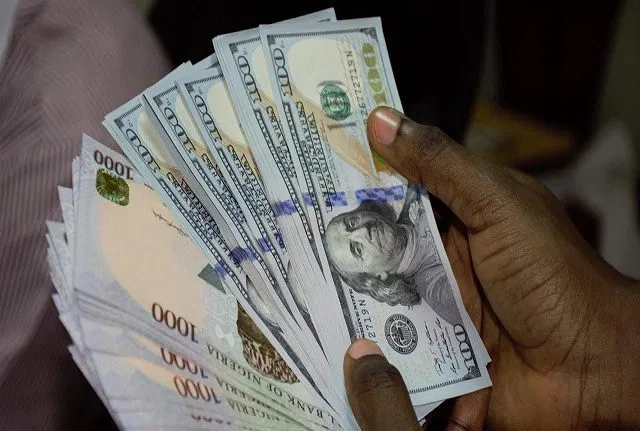The naira dropped further on Wednesday morning to sell at a rate of N453 to $1 at the black market as against N451 to $1 recorded on Tuesday, showing a differential of N2.00, as individuals and businesses rushed to meet their payment obligations through the black channel of Nigeria’s currency market.
Local importers were left scrambling for dollars, while providers of foreign exchange, such as foreign investors have not returned to the country.
It should be observed that the naira has been hitting record lows on the parallel and over-the-counter spot markets since early March, when the Central Bank of Nigeria (CBN) adjusted the value of the naira by 15%.
Private sources in commercial banks, however, stated that Nigeria’s central bank has been trying to improve the liquidity on the interbank market.
Several days ago, the CBN withdrew around N460 billion from Nigeria’s banking system, banking sources told Reuters.
The bank has resumed dollar sales to local clients, selling around $100 million per week, but has yet to sell to foreign-based investors, traders say, after it scrapped a planned auction because of lockdown measures to slow the COVID-19 pandemic.
Meanwhile, Philip Anegbe, Team Lead, CardinalStone Research, in an interview with Nairametrics, expects the naira to hover around the N440 to $1 support levels. He said:
“With the recent recovery in oil price and greater scope for more concessionary borrowing/debt reliefs, we now expect the CBN to reprice the naira to N400/$ at the I&E window by year end, with a trading band of N390/$ to N410/$.
“However, our fundamentally obtained fair value remains N440/$ even though the reality of CBN’s currency management makes a full tilt to market-driven pricing highly unlikely this year.”
The CBN recently said that it would use all the monetary tools it had to rescue the Nigerian economy from the fallouts of the COVID-19 induced global economic strain, and stabilize the naira. It had also taken some concrete steps to tackle currency speculators.












